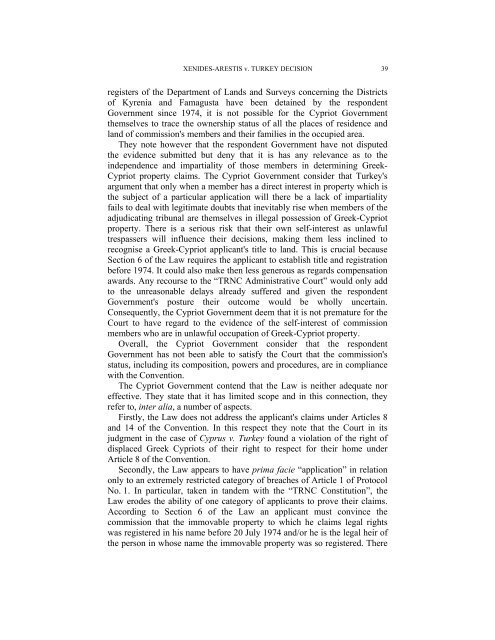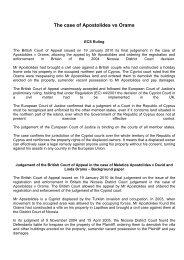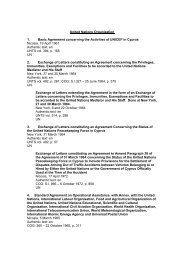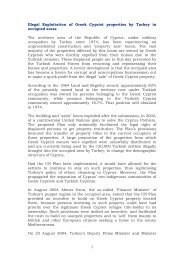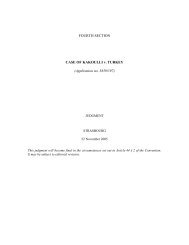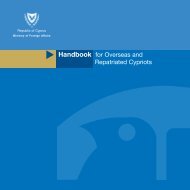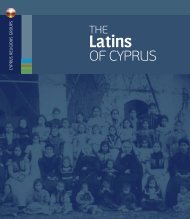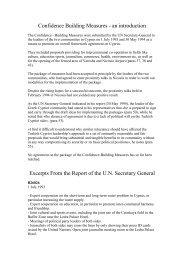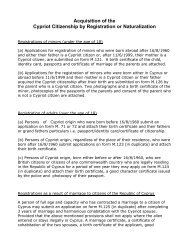Myra Xenides- Arestis v. Turkey
Myra Xenides- Arestis v. Turkey
Myra Xenides- Arestis v. Turkey
You also want an ePaper? Increase the reach of your titles
YUMPU automatically turns print PDFs into web optimized ePapers that Google loves.
XENIDES-ARESTIS v. TURKEY DECISION 39registers of the Department of Lands and Surveys concerning the Districtsof Kyrenia and Famagusta have been detained by the respondentGovernment since 1974, it is not possible for the Cypriot Governmentthemselves to trace the ownership status of all the places of residence andland of commission's members and their families in the occupied area.They note however that the respondent Government have not disputedthe evidence submitted but deny that it is has any relevance as to theindependence and impartiality of those members in determining Greek-Cypriot property claims. The Cypriot Government consider that <strong>Turkey</strong>'sargument that only when a member has a direct interest in property which isthe subject of a particular application will there be a lack of impartialityfails to deal with legitimate doubts that inevitably rise when members of theadjudicating tribunal are themselves in illegal possession of Greek-Cypriotproperty. There is a serious risk that their own self-interest as unlawfultrespassers will influence their decisions, making them less inclined torecognise a Greek-Cypriot applicant's title to land. This is crucial becauseSection 6 of the Law requires the applicant to establish title and registrationbefore 1974. It could also make then less generous as regards compensationawards. Any recourse to the “TRNC Administrative Court” would only addto the unreasonable delays already suffered and given the respondentGovernment's posture their outcome would be wholly uncertain.Consequently, the Cypriot Government deem that it is not premature for theCourt to have regard to the evidence of the self-interest of commissionmembers who are in unlawful occupation of Greek-Cypriot property.Overall, the Cypriot Government consider that the respondentGovernment has not been able to satisfy the Court that the commission'sstatus, including its composition, powers and procedures, are in compliancewith the Convention.The Cypriot Government contend that the Law is neither adequate noreffective. They state that it has limited scope and in this connection, theyrefer to, inter alia, a number of aspects.Firstly, the Law does not address the applicant's claims under Articles 8and 14 of the Convention. In this respect they note that the Court in itsjudgment in the case of Cyprus v. <strong>Turkey</strong> found a violation of the right ofdisplaced Greek Cypriots of their right to respect for their home underArticle 8 of the Convention.Secondly, the Law appears to have prima facie “application” in relationonly to an extremely restricted category of breaches of Article 1 of ProtocolNo. 1. In particular, taken in tandem with the “TRNC Constitution”, theLaw erodes the ability of one category of applicants to prove their claims.According to Section 6 of the Law an applicant must convince thecommission that the immovable property to which he claims legal rightswas registered in his name before 20 July 1974 and/or he is the legal heir ofthe person in whose name the immovable property was so registered. There


